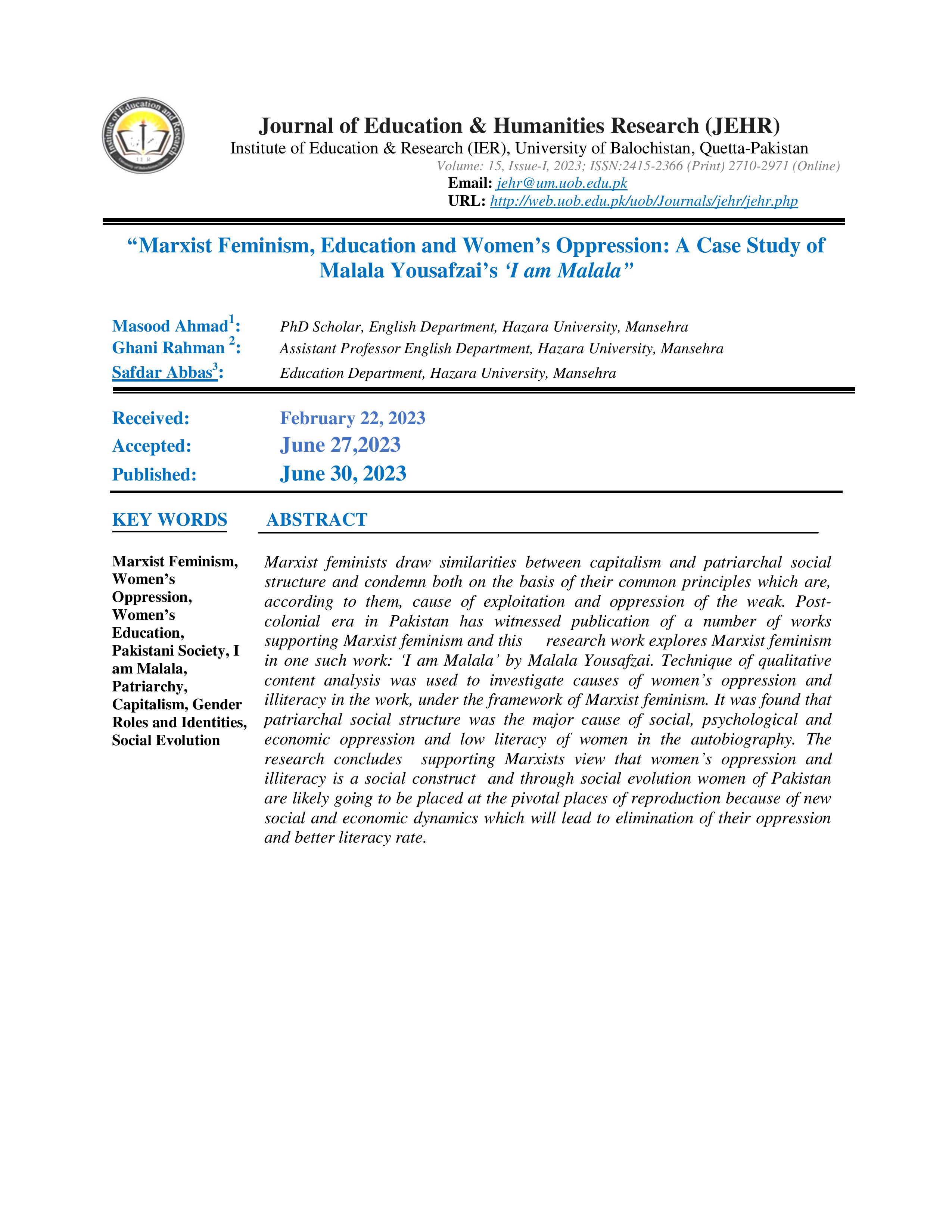Marxist Feminism, Education and Women’s Oppression: A Case Study of Malala Yousafzai’s ‘I am Malala
Keywords:
Marxist Feminism, Women’s Oppression, Women’s Education, Pakistani Society, I am Malala, Patriarchy, Capitalism, Gender Roles and Identities, Social EvolutionAbstract
Marxist feminists draw similarities between capitalism and patriarchal social structure and condemn both on the basis
of their common principles which are, according to them, cause of exploitation and oppression of the weak. Postcolonial era in Pakistan has witnessed publication of a number of works supporting Marxist feminism and this
research work explores Marxist feminism in one such work: ‘I am Malala’ by Malala Yousafzai. Technique of
qualitative content analysis was used to investigate causes of women’s oppression and illiteracy in the work, under
the framework of Marxist feminism. It was found that patriarchal social structure was the major cause of social,
psychological and economic oppression and low literacy of women in the autobiography. The research concludes
supporting Marxists view that women’s oppression and illiteracy is a social construct and through social evolution
women of Pakistan are likely going to be placed at the pivotal places of reproduction because of new social and
economic dynamics which will lead to elimination of their oppression and better literacy rate.
References
Abbasi, I. M. (2015). Marxist feminism in Alice Walker’s novels: The temple of My Familiar, Maridian and The Color Purple (Unpublished doctoral Thesis). National University of Modern Languages, Islamabad, Pakistan.
Durkheim, E. (2014). Division of Labor in Society (1st ed.). Free Press.
Durant, W. (2021). The Pleasures of Philosophy. Simon and Schuster.
Durrani, T. (1994). My Feudal Lord: A Devastating Indictment of Women’s Role in Muslim Society (Reprint ed.). Corgi Books.
Engels, F., & Hunt, T. (2010). The Origin of the Family, Private Property and the State (Penguin Classics)
(Reissue ed.). Penguin Classics.
Marcia, J. (1980). Identity in Adolescence. Wiley
Marx, K., Engels, F., & Morse, S. (2020). The Communist Manifesto. Independently published.
Parsons, T. (1967). The Structure of Social Action, Vol. 1: Marshall, Pareto, Durkheim (2nd ed.). Free Press.
Raza, J. (2015). Effectiveness of female madaris in women’s empowerment in Pakistan (Unpublished doctoral thesis). University of Peshawar, Pakistan.
Saad, L. (2019, August 10). 10 Major Social Changes in the 50 Years since Woodstock.
http://news.gallop.com//opinion/gallop/265490/major-social-changes-woodstock.aspx
Sarir, S. (2019). Mate selection mechanism among educated working women: A study of selected public sector . universities in Peshawar, Pakistan (Unpublished doctoral thesis). University of Peshawar, Pakistan.




